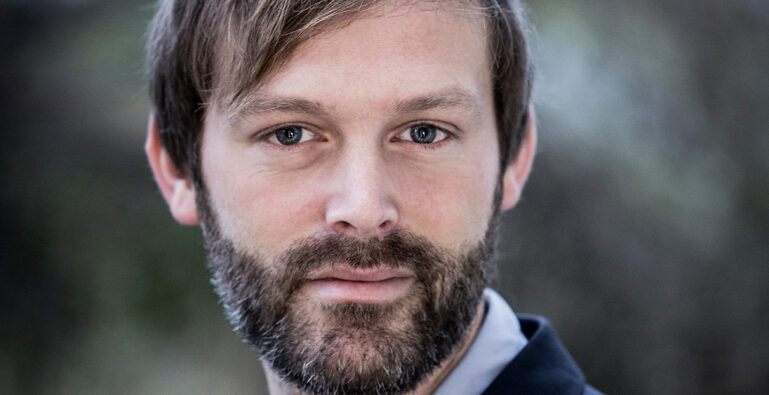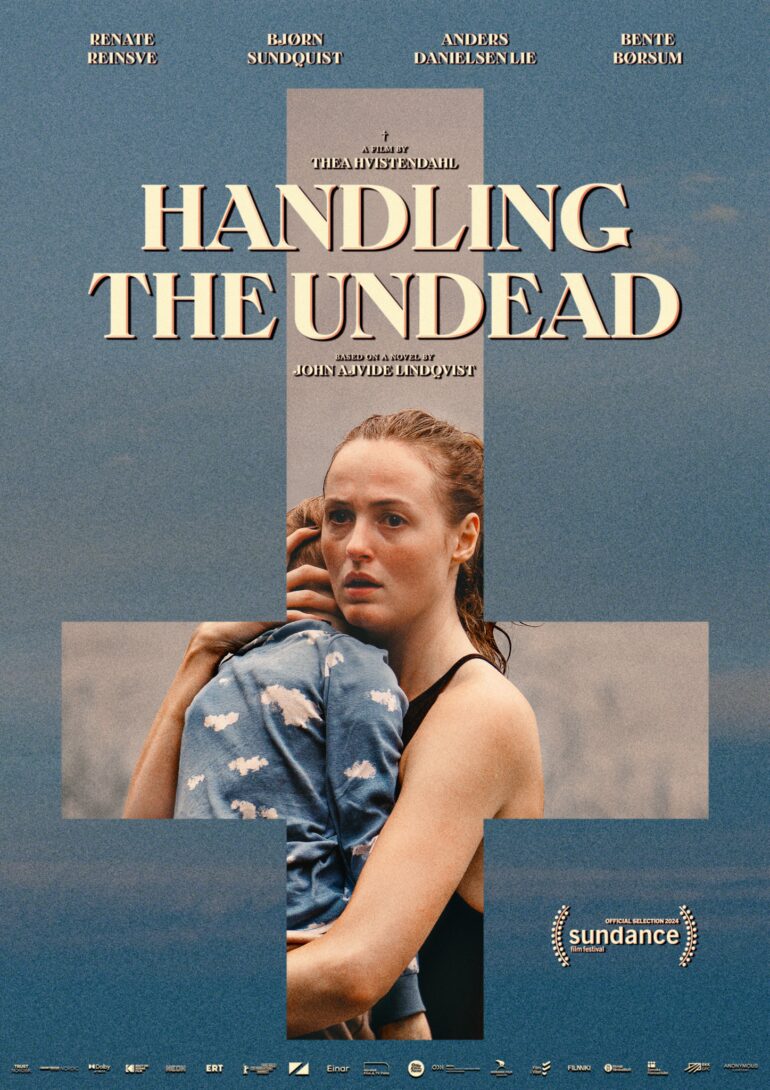Written by: Geoffrey Macnab
11.01.24
As the programme was released for the 47th Gothenburg Film Festival, festival director Jonas Holmberg reflects on his 10 years at the helm and explains why Nordic cinema is in such rude health.
As Jonas Holmberg announced his final programme as Artistic Director of the Gothenburg Film Festival, he has hailed what he believes is the “strongest” Nordic programme in his decade at the helm.
For the program: CLICK HERE.
“I think Nordic cinema has grown stronger in very many ways in the course of those 10 years. This has to do with many things. One of them is a new generation of directors. Also, something very apparent is the interest of arthouse filmmakers in genre material.”
This year’s festival will open with Thea Hvistendahl’s horror-drama Handling the Undead (Håndtering av udøde), an adaptation of the cult novel by John Ajvide Lindqvist. The film stars Renate Reinsve - and indie powerhouse Neon will be releasing it in the US.
“It’s a very beautiful film, an existentially challenging story which deals with questions about death and grief in a very interesting way. Cinematically, it is a wonderful film,” Holmberg says of the film which comes to Göteborg 15 years after the Gothenburg premiere of another Lindqvist adaptation, Let The Right One In, which went on to become a global hit. “It was an important event for Nordic cinema.”
Holmberg has highlighted a paradox that has become apparent over his time at the festival. Nordic films are currently “celebrated throughout the world” and yet, “especially in Sweden, it has been difficult for many of those wonderful works to really connect with audiences. We see a very low number of cinema admissions, especially for Nordic arthouse content.”
The festival director attributed the struggles of these films at the Nordic box office to the fact that cinema itself is going through a “period of transition.” The pandemic hasn’t helped either.
“But as long as Nordic filmmakers continue to make such strong works as the ones we are screening at this year’s festival, I am very sure they will also find audiences in the future. And we want to be the platform where the world of cinema may discover the most interesting talents from the Nordic region.”
Whatever the struggles Nordic arthouse films face to reach audiences in cinemas, they show to bumper crowds during Gothenburg itself when festival admissions tend to be around the 270,000 mark. “In the darkest hours of winter in Sweden in the north, we create a window to the world, to discovery, for many people.”
Holmberg cites the mix of new and experienced Nordic talents who have films in the programme as a reason for optimism.
Among the younger talents with films at the festival are fast-rising Norway-based auteur Johanna Pyykkö with her debut feature My Wonderful Stranger (Min fantastiske fremmede); Swedish filmmaker Ernst De Geer with his “hilarious” satire The Hypnotist (Hypnosen), and the Swede Isabella Eklöf, returning to the festival with Kalak.
“One reason I am so happy with this year’s competition is the variety. There are films in so many different styles and genres. At times, Nordic cinema has been rumoured to be a bit bleak - dark and depressing stories about people in nature - but if you look at the competition, there are dramas, comedies, dramedies, momentuous films, lighter films, political works, and science fiction films.”
The sci-fi comes in the form of Eternal, the second feature from young Danish director Ulaa Salim.
On the doc front, the festival will present Iberin by Norwegian director Benjamin Ree (The Painter and the Thief), fresh from its Sundance world premiere. “This is such a strong story, it’s heartwarming, and it’s an interesting way to make a film - to use the tools of the gaming industry to create cinematic storytelling in a documentary format, which I think is a bit groundbreaking,” Holmberg reflects.
It is now almost taken for granted that there’s gender parity in the programme. “Our starting point is always that we should have equally many male and female filmmakers in the programme. Of course, gender equality is not just about promoting director names. It is also about something much more complex; the contents of the film.”
One of the most seismic changes over the last 10 years has been the rise of the streamers - and, with it, the new emphasis on TV drama. The festival is paying tribute to Sidse Babett Knudsen, who will receive the Nordic Honorary Dragon Award. Thanks to her starring role as everyone’s favourite politician in Borgen, Knudsen is one of the most recognisable faces in a new media world in which (as Holmberg puts it) “international players have entered the Nordic film market and engaged Nordic actors and filmmakers.”
International guests present at the festival will include Ewan McGregor, currently starring in a Nordic film, Niclas Larsson's Mother, Couch. The Scot will give an onstage interview following a screening of one of his most celebrated films, Trainspotting (1996). Also due in town is Cannes Artistic Director Thierry Fremaux, who’ll take part in an onstage Q&A with Swedish director Ruben Östlund.
Once this year’s festival is over, Holmberg will be starting a new job in the spring as Director of Kalmar Art Museum.
What is his advice for his successor, Pia Lundberg? “I don’t think she needs my advice to develop the festival further. I think she is a wonderful person, full of knowledge and talent,” Holmberg pauses. ”But if I should give one piece of advice… have fun, and others will also!”

